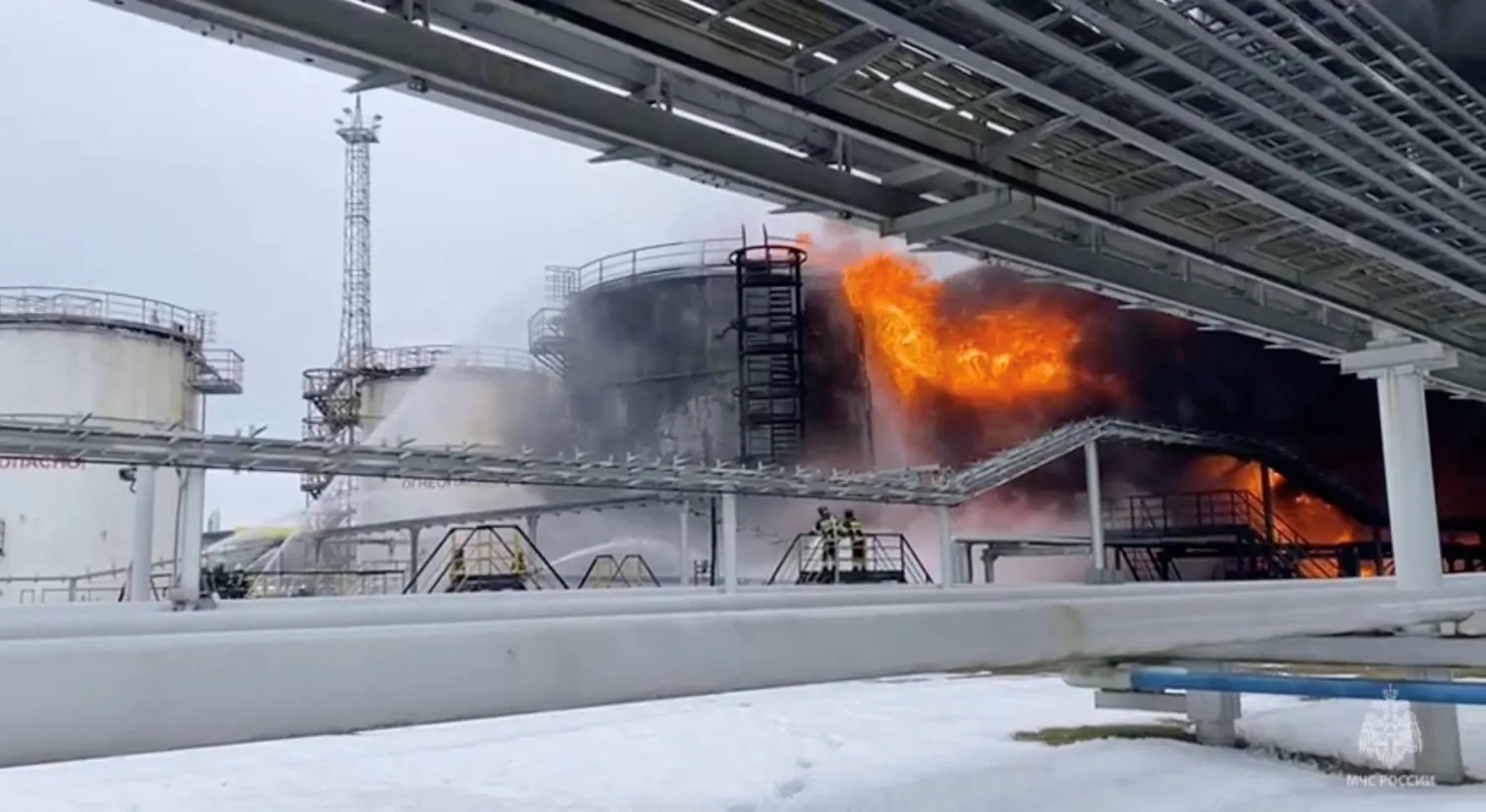An oil depot caught fire in Russia’s southwestern Rostov region Saturday following a Ukrainian drone attack in the early hours, local officials said, in the latest long-range strike by Kyiv’s forces on a border region.
Ukraine has in recent months stepped up aerial assaults on Russian soil, targeting refineries and oil terminals in an effort to slow down the Kremlin’s war machine. Moscow’s army is pressing hard along the front line in eastern Ukraine, where a shortage of troops and ammunition in the third year of war has made defenders vulnerable, The Associated press said.
Rostov regional Gov. Vasily Golubev said a drone attack had caused a blaze spanning 200 square meters (2,100 square feet), but there were no casualties. Some five hours after he reported the fire on Telegram, Golubev said the fire had been extinguished.
In addition to two drones being intercepted over the Rostov region, Russian air defense systems overnight destroyed two drones over the country’s western Kursk and Belgorod regions, the Russian Ministry of Defense said Saturday.
Ukraine’s air defenses, meanwhile, intercepted four of the five drones launched by Russia overnight, the Ukrainian Air Force said Saturday morning. Mykola Oleschuk, commander of Ukraine’s Air Forces, said the fifth drone left Ukrainian airspace in the direction of Belarus.
In other developments, Vadym Filashkin, the Ukrainian governor of the partly occupied eastern Donetsk region, said Saturday that Russian attacks on Friday had killed six people and wounded a further 22.
Oleksandr Prokudin, governor of the Kherson region that is also partly occupied, said Saturday that one person had been killed and six wounded as a result of Russian shelling over the previous day.
Fire at a Russian Oil Depot as Russia and Ukraine Exchange Drone Attacks

Firefighters extinguish oil tanks at a storage facility that local authorities say caught fire after the military brought down a Ukrainian drone, in the town of Klintsy in the Bryansk Region, Russia January 19, 2024, in this still image taken from video. Russian Emergencies Ministry/Handout via REUTERS/File Photo

Fire at a Russian Oil Depot as Russia and Ukraine Exchange Drone Attacks

Firefighters extinguish oil tanks at a storage facility that local authorities say caught fire after the military brought down a Ukrainian drone, in the town of Klintsy in the Bryansk Region, Russia January 19, 2024, in this still image taken from video. Russian Emergencies Ministry/Handout via REUTERS/File Photo
لم تشترك بعد
انشئ حساباً خاصاً بك لتحصل على أخبار مخصصة لك ولتتمتع بخاصية حفظ المقالات وتتلقى نشراتنا البريدية المتنوعة







